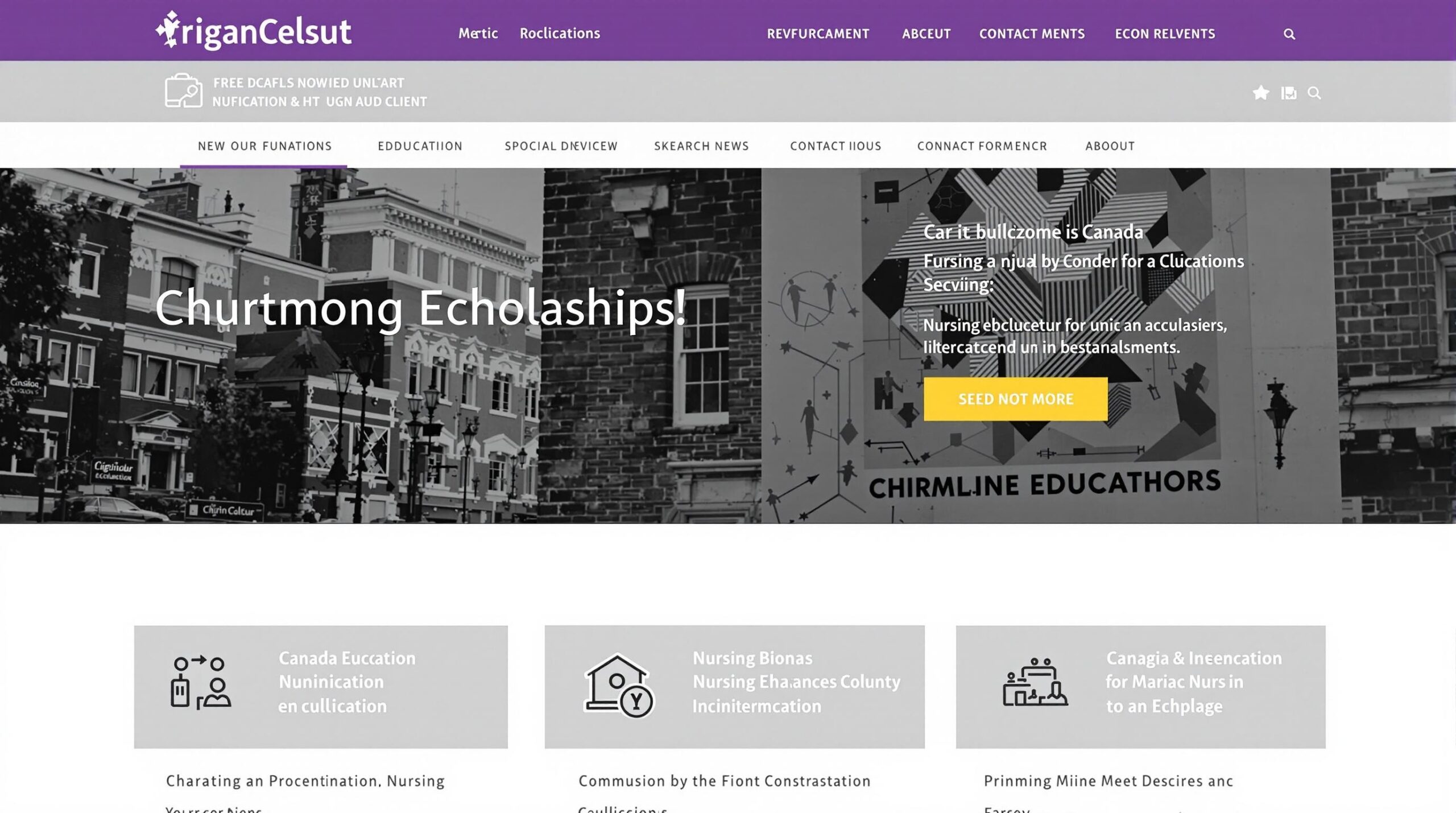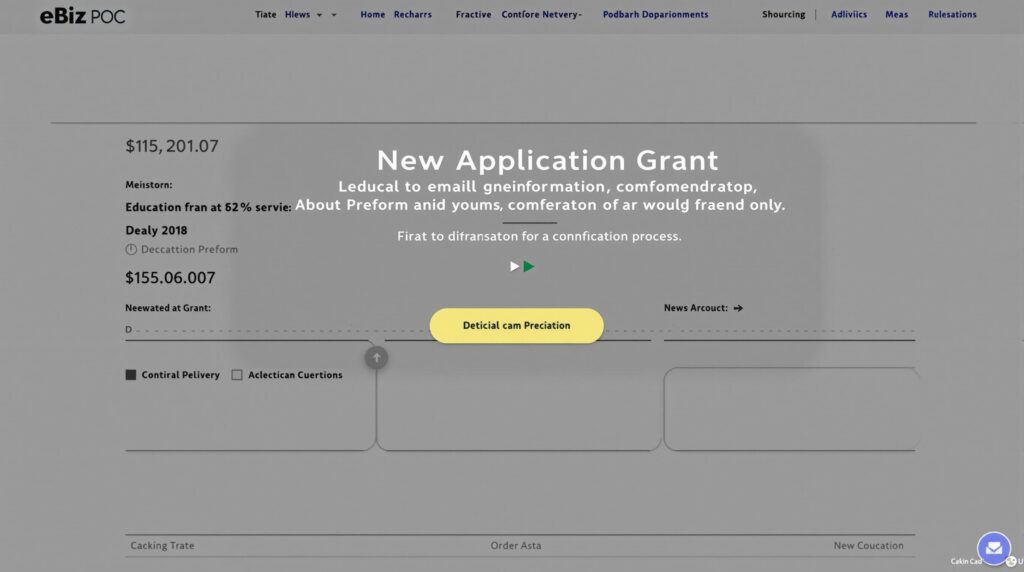Pursuing a nursing education in Canada offers numerous career opportunities, but the cost can be a significant barrier for many aspiring healthcare professionals. Fortunately, various grants and scholarships are available specifically for students attending canada nursing colleges, providing financial support that can make the difference between struggling financially and focusing on your studies.
Key Takeaways
- The Canadian Nurses Foundation (CNF) distributes over $400,000 annually to nursing students across various education levels
- Provincial programs like Ontario’s Learn and Stay Grant offer full tuition coverage in exchange for work commitments
- Professional nursing associations provide specialized funding and mentorship opportunities for career advancement
- Dedicated scholarships exist for Indigenous and international students to increase diversity in nursing
- Strategic application timing and combining multiple funding sources can maximize financial support for your nursing education
Understanding the Nursing Education Landscape in Canada
Canada’s healthcare system depends heavily on a well-educated nursing workforce. Despite producing 12,780 registered nurse graduates in 2021, the country still faces over 22,000 nursing vacancies nationwide. This gap is further complicated by faculty shortages, with 97 permanent nursing faculty retiring in 2021 and schools needing 543 new faculty by 2025.
Financial barriers often prevent qualified candidates from pursuing nursing education. The high costs of tuition, books, clinical supplies, and living expenses can be prohibitive. This is where strategic funding knowledge becomes essential for aspiring nurses. Understanding the available grants and scholarships can make nursing education accessible regardless of your financial background.

Canadian Nurses Foundation: Premier Nursing Scholarships
The Canadian Nurses Foundation (CNF) stands as the gold standard for nursing scholarships in Canada. Each year, CNF distributes over $400,000 to more than 100 deserving students. These awards follow a tiered structure based on educational level:
- Baccalaureate level: $750-$4,000
- Masters/Nurse Practitioner programs: $1,000-$5,000
- Doctoral studies: $1,000-$15,000
- Equity, Diversity, and Inclusion scholarships: $3,000-$15,000
CNF also offers specialized funding streams, including Internationally Educated Nursing Awards ($1,500-$3,000) and Canadian Nursing Students’ Association Member Awards ($1,000 each for 24 recipients). The application process is competitive, with approximately one in five applicants receiving funding. I recommend marking March 14 on your calendar – that’s the annual application deadline for CNF scholarships.
Provincial Government Funding Opportunities
Each Canadian province offers unique funding programs for nursing students. Ontario’s Learn and Stay Grant covers full tuition for nursing students who commit to working in underserved regions after graduation. The work commitment is structured as six months of service per funded year of education.
British Columbia offers the Nursing Tuition Grant, providing $2,000 per academic year until August 2026 for students in Practical Nursing, Bachelor of Science in Nursing, and Psychiatric Nursing programs at public institutions. This grant is automatically applied to eligible students’ accounts, simplifying the process.
Ontario’s Community Commitment Program for Nurses provides a $25,000 grant for nurses who commit to two years of work in designated facilities. Those willing to work in Northern Ontario receive an additional $10,000 bonus. The application windows vary by program:
- Ontario Learn and Stay Grant: Opens April 2025 through OSAP
- BC Nursing Tuition Grant: Automatically applied to eligible students
- Community Commitment Program: Rolling applications based on facility needs
Professional Association Funding and Support
Professional nursing associations offer substantial financial assistance and career development opportunities. WeRPN provides multiple funding streams, including the Nursing Education Initiative for continuing education and the BEGIN Program for career advancement from PSW to RPN or RPN to RN.
The Education Trust Fund offers $1,000 bursaries for Ontario practical nursing students, with an October 31 application deadline. The Registered Nurses’ Foundation of Ontario (RNFOO) provides the Nurse Innovator Award for those developing healthcare solutions, along with valuable mentorship opportunities paired with industry leaders.
Career pathway funding is particularly beneficial, with up to $5,000 annually available for Registered Practical Nurses bridging to Registered Nurse programs. These professional association funds often have less competition than national scholarships, increasing your chances of success.
Federal Initiatives and Transition Support
The federal government has invested $2.4 million in the National Nurse Residency Program for 2023-2027. This initiative focuses on competency-based workshops and mentorship for new graduates, helping them transition successfully into the workforce.
Employers receive $1,500 per nurse for professional development, creating incentives to hire and retain new graduates. The funding is disbursed in six installments over 24 months, providing ongoing support during the critical early career phase. The program aims to reduce attrition rates among new nursing graduates, addressing the persistent nationwide shortage.
Diversity-Focused Scholarships
Canada’s nursing profession is working to increase diversity, with dedicated funding for underrepresented groups. Indigenous students can access Indspire Awards of up to $2,500 per year, renewable with a 2.0 GPA. The Anne Rieder Scholarship provides $1,900 for nurses addressing Aboriginal health disparities.
International students have options too. The University of Toronto offers over 100 specific awards for international Bachelor of Science in Nursing students. The Florence Nightingale Foundation provides travel grants for Commonwealth students studying in Canada. These opportunities aim to create a nursing workforce that reflects Canada’s diverse population.
Maximizing Your Funding Opportunities
To maximize your chances of securing funding, I recommend creating a strategic application timeline. Organize applications by deadline, with CNF (March 14) and the Education Trust Fund (October 31) as key dates to remember.
Application success depends on several factors: academic excellence, leadership potential, and commitment to underserved areas. Many successful applicants combine multiple funding sources legally—for example, a provincial tuition grant with a professional association scholarship.
Consider alternative support routes like work-study programs or tuition reimbursement through healthcare employers. Prepare your documentation early, gathering transcripts, references, and personal statements well before deadlines to ensure a polished application.
Career Outcomes and Return on Investment
Funded nursing education directly addresses Canada’s 22,641 nursing vacancies. Graduates with funding often start their careers debt-free and more focused on clinical practice rather than financial stress. Specialized funding streams can open doors to advanced practice roles with higher salaries.
Initial funding can accelerate career progression by allowing for earlier pursuit of advanced certifications or graduate education. Many nurses who leveraged funding early in their careers have gone on to leadership positions or specialized practice areas. The return on investment for nursing education funding isn’t just financial—it translates to better patient care and healthcare system stability.
Sources
Canadian Nurses Foundation – Scholarships
WeRPN – Education Grants and Scholarships
StudentAidBC – Nursing Tuition Grant
Carleton University – Learn and Stay
HealthForceOntario – Community Commitment Program for Nurses
CASN – Nurses Education in Canada Statistics Report 2020-2021



